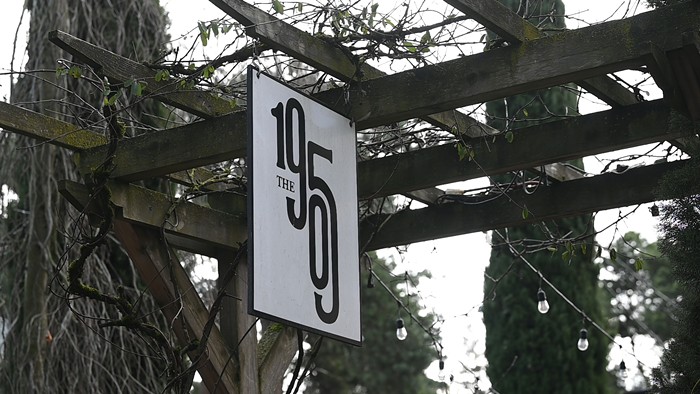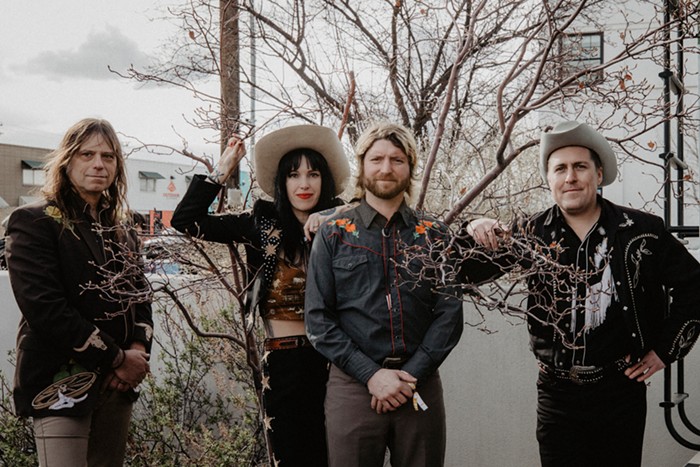FOR AS MUCH AS "shoegaze" is the descriptor of choice for any artist who washes their songs in a bath of vaporous, overdriven guitar noise and wispy, longing vocals, it was originally used as a pejorative by the British press in the late '80s/early '90s.
"It was never a good thing to be called that," says Miki Berenyi, lead singer and guitarist of Lush. "So when we got to the States and people said, 'Oh you're a shoegaze band,' it sounded like an insult. It took us a while to realize that people had taken it to be a good thing. In this country, we got the Britpop tag as well. We never thought those kind of categories were fair. You always feel you have more to offer. But now, we're going, 'No, we're not Britpop, but okay, we are shoegaze then if it helps.'"
This sort of musical nitpicking has been fresh on Berenyi's mind since she and her bandmates in Lush revealed last September they would be reuniting after a nearly 20-year absence. Since that announcement and the news that the group would be touring in Europe and North America, she, singer/guitarist Emma Anderson, and bassist Phil King have had to reckon with their history and legacy.
And as to be expected, it has drawn out all the glee and gloom of the past.
Lush's story is primarily a positive one. Signed to renowned label 4AD, the band evolved comfortably from the pure dream pop of early recordings like 1989's Scar EP and their 1992 debut full-length, Spooky (produced by Cocteau Twins guitarist Robin Guthrie), to the more refined jangle and drive of their ultra-poppy final LP, Lovelife. Along the way, they scored chart hits in the UK and earned a rabid cult following on this side of the Atlantic.
The band's latter years, though, were also filled with tension and exhaustion as their management pushed them to tour frequently in the States in hopes of capturing mainstream success. Things were already reaching their breaking point in 1996—that year they were dealt a devastating blow, when founding drummer Chris Acland committed suicide. Not seeing a way forward, the surviving members split. Anderson and King both took on new musical projects, and Berenyi concentrated on her career and family.
What drew Lush back together was, in part, the successful reunions of contemporaries in Ride and Slowdive, but also a definite sense of unfinished business. That's the feeling that emanates from Blind Spot, the group's new EP (recorded with former Elastica drummer Justin Welch) that ties together elements of their past work in washed-out ballads like "Out of Control" and the blithe "Burnham Beeches." The recording session also helped set Berenyi's mind at ease about moving forward with the band.
"It was always going to be a big thing, because we don't have Chris anymore," she says. "I was very ambivalent about how I'd feel about that as well. There was a lot stopping me from wanting to do it. But being able to do the recording, I was surprised at how easy and enjoyable it felt. It definitely helped to get the momentum going."


















